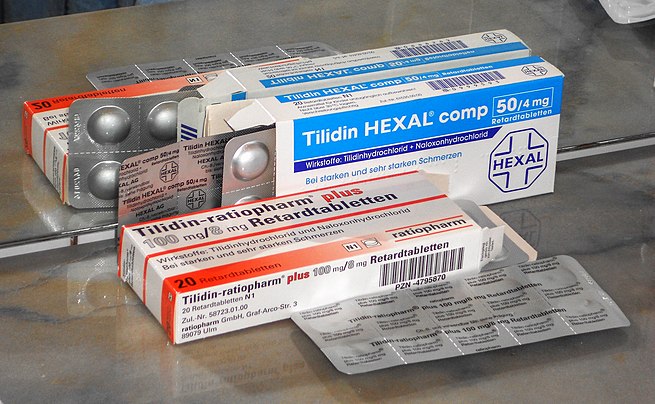
Main Difference
The main difference between Medication and Medicine is that the Medication is a substance used to diagnose, cure, treat, or prevent disease and Medicine is a field of study for diagnosing, treating and preventing disease
-
Medication
A medication (also referred to as medicine, pharmaceutical drug, or simply drug) is a drug used to diagnose, cure, treat, or prevent disease. Drug therapy (pharmacotherapy) is an important part of the medical field and relies on the science of pharmacology for continual advancement and on pharmacy for appropriate management.
Drugs are classified in various ways. One of the key divisions is by level of control, which distinguishes prescription drugs (those that a pharmacist dispenses only on the order of a physician, physician assistant, or qualified nurse) from over-the-counter drugs (those that consumers can order for themselves). Another key distinction is between traditional small-molecule drugs, usually derived from chemical synthesis, and biopharmaceuticals, which include recombinant proteins, vaccines, blood products used therapeutically (such as IVIG), gene therapy, monoclonal antibodies and cell therapy (for instance, stem-cell therapies). Other ways to classify medicines are by mode of action, route of administration, biological system affected, or therapeutic effects. An elaborate and widely used classification system is the Anatomical Therapeutic Chemical Classification System (ATC system). The World Health Organization keeps a list of essential medicines.
Drug discovery and drug development are complex and expensive endeavors undertaken by pharmaceutical companies, academic scientists, and governments. As a result of this complex path from discovery to commercialization, partnering has become a standard practice for advancing drug candidates through development pipelines. Governments generally regulate what drugs can be marketed, how drugs are marketed, and in some jurisdictions, drug pricing. Controversies have arisen over drug pricing and disposal of used drugs.
-
Medicine
Medicine is the science and practice of the diagnosis, treatment, and prevention of disease. Medicine encompasses a variety of health care practices evolved to maintain and restore health by the prevention and treatment of illness. Contemporary medicine applies biomedical sciences, biomedical research, genetics, and medical technology to diagnose, treat, and prevent injury and disease, typically through pharmaceuticals or surgery, but also through therapies as diverse as psychotherapy, external splints and traction, medical devices, biologics, and ionizing radiation, amongst others.Medicine has existed for thousands of years, during most of which it was an art (an area of skill and knowledge) frequently having connections to the religious and philosophical beliefs of local culture. For example, a medicine man would apply herbs and say prayers for healing, or an ancient philosopher and physician would apply bloodletting according to the theories of humorism. In recent centuries, since the advent of modern science, most medicine has become a combination of art and science (both basic and applied, under the umbrella of medical science). While stitching technique for sutures is an art learned through practice, the knowledge of what happens at the cellular and molecular level in the tissues being stitched arises through science.
Prescientific forms of medicine are now known as traditional medicine and folk medicine. They remain commonly used with or instead of scientific medicine and are thus called alternative medicine. For example, evidence on the effectiveness of acupuncture is “variable and inconsistent” for any condition, but is generally safe when done by an appropriately trained practitioner. In contrast, treatments outside the bounds of safety and efficacy are termed quackery.
-
Medication (noun)
A medicine, or all the medicines regularly taken by a patient.
-
Medication (noun)
The administration of medicine.
-
Medicine (noun)
A substance which specifically promotes healing when ingested or consumed in some way.
-
Medicine (noun)
A treatment or cure.
-
Medicine (noun)
The study of the cause, diagnosis, prognosis and treatment of disease or illness.
-
Medicine (noun)
The profession of physicians, surgeons and related specialisms; those who practice medicine.
-
Medicine (noun)
Ritual Native American magic used by a medicine man to promote a desired outcome in healing, hunting, warfare etc.
-
Medicine (noun)
Among the Native Americans, any object supposed to give control over natural or magical forces, to act as a protective charm, or to cause healing.
-
Medicine (noun)
black magic, superstition.
-
Medicine (noun)
A philter or love potion.
-
Medicine (noun)
A physician.
-
Medicine (noun)
recreational drugs, especially alcoholic drinks
-
Medicine (verb)
To treat with medicine.
-
Medication (noun)
a drug or other form of medicine that is used to treat or prevent disease
“he was given medication for pain”
“certain medications can cause dizziness”
-
Medication (noun)
treatment using drugs
“chronic gastrointestinal symptoms may require prolonged medication”
-
Medicine (noun)
the science or practice of the diagnosis, treatment, and prevention of disease (in technical use often taken to exclude surgery)
“he made distinguished contributions to pathology and medicine”
“the remarkable achievements of modern medicine”
-
Medicine (noun)
a drug or other preparation for the treatment or prevention of disease
“your doctor will be able to prescribe medicines”
“give her some medicine”
-
Medicine (noun)
(especially among some North American Indian peoples) a spell, charm, or fetish believed to have healing, protective, or other power
“Fleur was murdering him by use of bad medicine”
